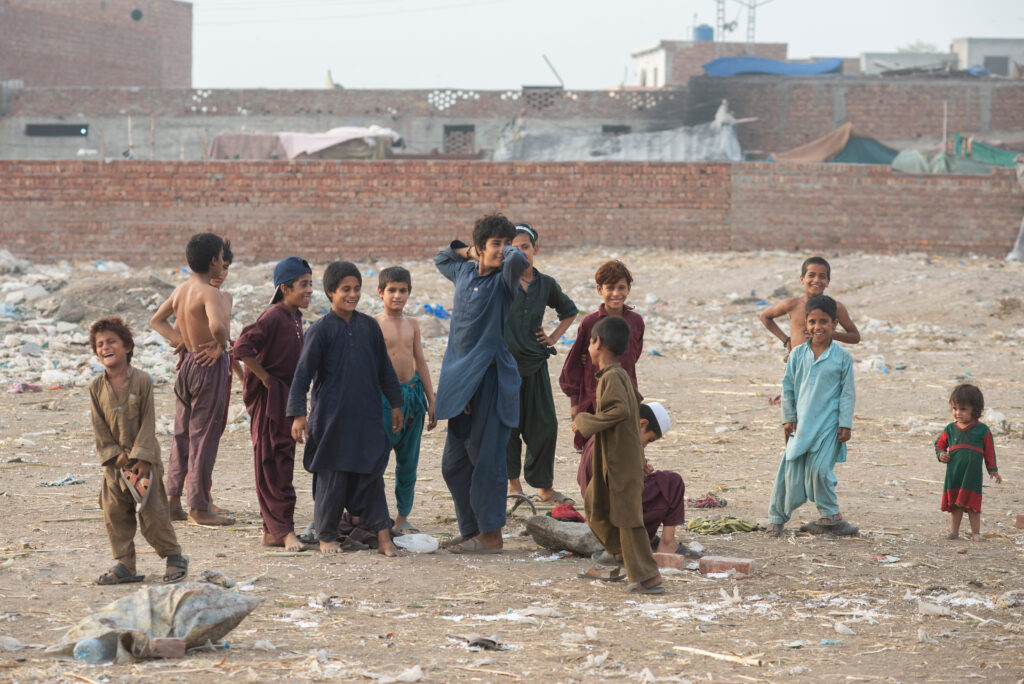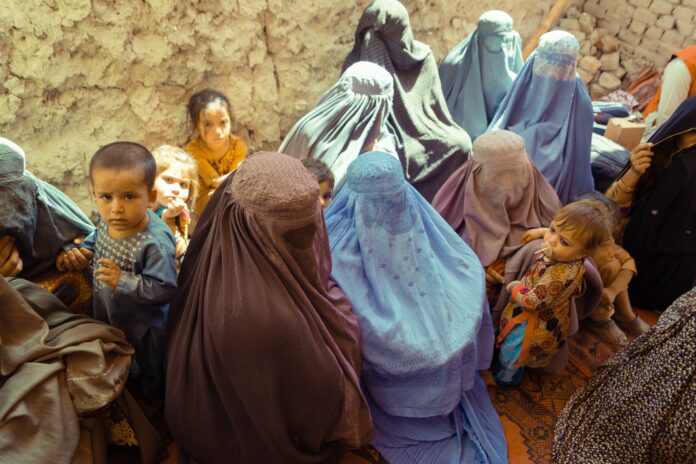The Pakistani government has given over one million “illegal immigrants” one month to leave the country in a move that could affect around 700,000 Afghan refugees.
Islamabad says it after the November 1 deadline all illegal immigrants will be deported.
The county will continue to host only “legal immigrants” while adhering to the November 1 deadline for deporting all those without valid resident permits in the country, Foreign Ministry spokesperson Mumtaz Zahra Baloch said.
Now the situation in Afghanistan has stabilised, it is time to create a conducive environment for the voluntary repatriation of Afghan refugees with honour and dignity, she added.
Mumtaz Zahra Baloch said Pakistan is a sovereign country that will act in accordance with the law.
Pakistan’s recent decision is not directed at Afghan refugees or any specific nationality, she said, adding that the decision is “against illegal migrants regardless of nationality.”
Meanwhile, Balochistan caretaker Information Minister Jan Achakzai said that after the deadline ends, the government will confiscate the properties and businesses of “illegal foreigners.”
Subscribe to our newsletter and stay updated on the latest news and updates from around the Muslim world!
Earlier this week, the state-run Associated Press of Pakistan earlier reported that out of a total of 1.1 million foreigners “who are posing a serious threat to national security, all illegal residents will be expelled from the country in the first phase.”
In the second phase those with Afghan citizenship and in the third phase, those with proof of residence cards, will be evicted.
Pakistan also alleges that some Afghan refugees have been involved in “funding and facilitating” terrorist activities in the country.
Out of the 24 suicide bombings on security installations and civilian targets in Pakistan this year, 14 involved suicide bombers who were Afghan nationals, according to Pakistani authorities.
IEA reaction
Reacting to the announcement, the Islamic Emirate of Afghanistan rejected Pakistan’s plan and asked Islamabad to reconsider its decision.
Spokesman Zabihullah Mujahid also rejected allegations that Afghans are involved in terror activities in Pakistan.
“The behaviour of Pakistan against Afghan refugees is unacceptable. The Pakistani side should reconsider its plan. Afghan refugees are not involved in Pakistan’s security problems. As long as they leave Pakistan voluntarily, that country should tolerate them,” Mujahid said on X.

Pakistan has been hosting a large number of Afghan refugees since the 1979 Soviet invasion of Afghanistan, with nearly 2.9 million still living in the country.
According to a report by the Ministry of States and Frontier Regions (SAFRON) which deals with Afghan refugees, more than 1.3 million Afghan refugees have Proof of Registration (PoR) cards while over 800,000 have Afghan Citizen Cards (ACCs).
The report said, however, that 700,000 Afghans are living in the country without any documents.
Among the registered Afghans, 52% are living in northwestern Khyber Pakhtunkhwa province bordering Afghanistan.
Another 321,677 Afghans are currently living in Balochistan province, 191,053 in Punjab and 73,789 in Sindh, mostly in the port city of Karachi, with 41,520 in the capital Islamabad and 4,352 in Azad Jammu and Kashmir, according to the UNHCR.
Pakistani authorities add that over 700,000 Afghans have arrived in Pakistan since the Taliban retook control of Afghanistan in 2021.
However, 18,000 Afghan refugees have also voluntarily returned to Afghanistan in the past two years.
Refugee testimony
Many Afghans in Pakistan own businesses and live in its main cities and some small towns.
A large number are also living in refugee camps in Khyber Pakhtunkhwa and Balochistan provinces.
“I am doing business and have three big textile shops and have spent millions of rupees to establish this business in Pakistan. What I will do now? Who will buy it while they are deporting us?” said Jandullah, an Afghan businessman.
According to Jandullah, thousands of Afghans are engaged in the textile, transport and hotel businesses.
“Who will pay us the exact price if we are selling our businesses at this time, as everyone knows the government is expelling us?” he said.
In Karachi, Saeedullah waved goodbye to his friends as he boarded a bus taking over 150 Afghan refugees to Pakistan’s southwestern Chaman border crossing with Afghanistan.
He is one of the thousands of Afghan refugees who have either started or are planning to return to their homeland following Islamabad’s decision to evict what it says are over 1 million “illegal immigrants.”
“I am not leaving by choice but I have no other option. I don’t want to be arrested or face any humiliation,” Saeedullah, a father of five, told Anadolu Agency.
Hailing from Afghanistan’s northeastern Takhar province, Saeedullah came to Pakistan days before the U.S. invasion of Afghanistan after the September 11 attacks.
In Karachi, a crowded refugee camp became his new home. Saeedullah was teaching at a local madrasa, or religious seminary, until last week.
He lost his status as a legal immigrant in 2012 as Pakistani authorities refused to renew his Afghan refugee card.
“I don’t know what I’ll do back in Afghanistan. There is nothing out there for us. But at least there’s no fear of arrests or deportation back there,” he said. “And there’s no longer the threat of violence,” he added.
Nearly 2,000 Afghans, including 700 in Karachi, have been arrested since early September in a crackdown on undocumented migrants, according to police figures.
According to a statement from Afghanistan’s department for refugee affairs, some 23,000 Afghans have been expelled by Pakistan in the past 20 days. Islamabad has not issued any figures from its side nor commented on the Afghan statement.
However, the United Nations High Commissioner for Refugees (UNHCR) opposes the Pakistani government’s plan to expel undocumented Afghan refugees.
“Any refugee return must be voluntary and without any pressure to ensure protection for those seeking safety,” UNHCR spokesman Qaiser Khan Afridi told Anadolu.
He added that the UNHCR is ready to help and support the Pakistani authorities in finding a suitable solution.
“We have two repatriation centers in Nowshera, Khyber Pakhtunkhwa and another one in Quetta, Balochistan and facilitate those Afghans who voluntarily return to their home country,” he said.
The UNHCR also provides $375 to every Afghan who voluntarily returns to their country upon their arrival in Afghanistan.
According to the UN agency’s statistics, they also facilitated over 4.3 million voluntary repatriations over a 20-year period from 2002 to 2022.
SOURCE: AA



















